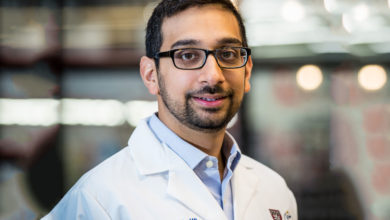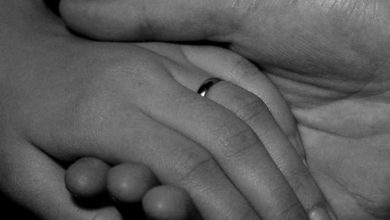Starting medical school felt like starting high school all over again. It definitely wasn’t like college where there can be hundreds, if not thousands, of students with different interests and passions. It was very much like high school, a small class of students who were forced to see each other almost every day while pretty much pursuing the same thing. To me, this was both a good and bad thing. Good because medical school is rigorous and you definitely want people to endure it together with. Bad because, just by human nature, cliques form and there can easily be more drama when you see the same people over and over again.
The first months of medical school were all about getting comfortable and finding a rhythm. I felt like going to a rigorous state public school prepared me for the academic rigors of medical school. When I was an undergrad at UCLA, I pretty much studied every day (rarely on weekends) and learned how to be disciplined because I was a terrible procrastinator. Medical school is obviously much harder than college – if you fell behind, it was very difficult to catch up because there was so much content. People compared consuming content from medical school to drinking from a fire hydrant. I quickly realized that even if you study every day, it’s almost impossible to be “ahead” of the material like you could be in college. You could always study more. I later understood that this would be true for the rest of my medical career – there is always more to learn.
Knowing that you could always study more is a constant source of anxiety. In college, you could truly finish studying and then relax without worrying about anything. In medical school, whenever you’re not studying, you’re wondering if you should be studying more because you’re never actually done studying. This made me think about my time differently; any time not studying was wasted time. I think this feeling was pretty common amongst my classmates. It was harder for us to enjoy socializing or spend time outside of school without thinking about school. It was a very dangerous mentality that made me think that my time was more valuable than other people’s, especially those outside of medicine. In college I was pretty good at time management. When I was not working or studying, I truly tried to enjoy the moment without worrying about the things I needed to do. I sectioned off time for relaxation and forced myself to take breaks. But when starting medical school, this was much harder to do because there was just so much more content.
My solution? Suck it up and realize that I’m not going to master everything. Accept the fact that I need to give myself breaks even when I’m anxious about falling behind even more. Force myself focus on my emotional wellbeing. Reflecting back, I’ve realized that every year has gotten harder with less free time. MS II year is more difficult than MS I, MS III is harder than MS II, etc (exception is that the 2nd half of 4th year of medical school is very easy). That meant that I had to learn how to accept my limitations early on because this source of anxiety was always there. Also, knowing what I know now, sacrificing socializing or relaxation time for an extra hour of studying was never worth it. Giving up sleep to look at a few extra lecture slides did not pay off. Yes, it was important to try to study as much as possible but never at the cost of my general wellbeing.
If you have started or are starting medical school soon, I hope you don’t feel too overwhelmed. It will feel like a lot and that is normal. You will have to accept that fact that you are human and can’t do everything that you possibly want to do. The sooner you accept that, the faster you can be happy during medical school and probably the rest of your career.



